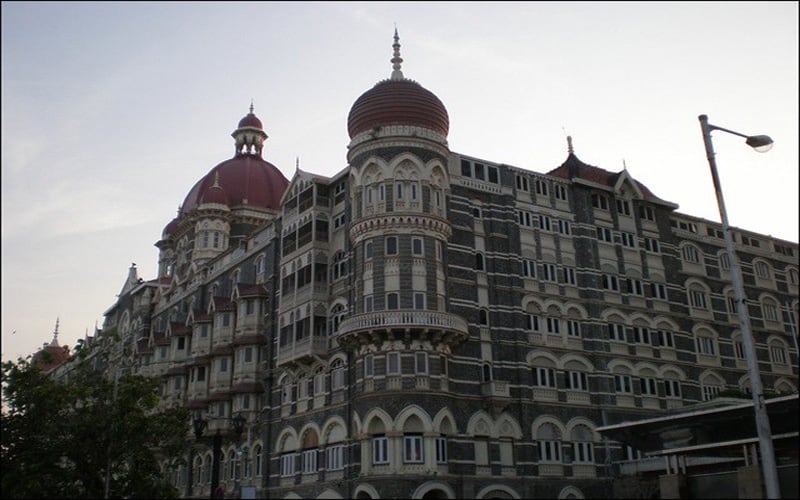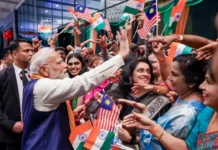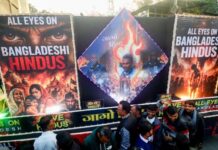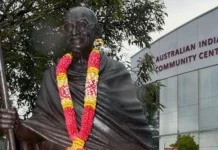LONDON: Hundreds of representatives from the Indian diaspora groups in London came together to mark the anniversary of the 2008 Mumbai terror attack with a stop terrorism message directed at Pakistan.
In one of the deadliest terror attacks in India’s history, 166 people, including six Americans, were killed and over 300 injured when 10 heavily-armed Lashkar-e-Taiba (LeT) terrorists from Pakistan created mayhem in Mumbai on November 26, 2008.
A demonstration organised by Aam Aadmi Party UK outside the Pakistan High Commission in London on Tuesday afternoon got heated amid the anti-terror sloganeering, leading to Pakistani officials calling in police to disperse the crowd. They came with sticks and were very disruptive, claimed one High Commission official.
Scotland Yard said it was aware of the planned demonstration and that there had been no violence. Later on Tuesday evening, an estimated 300 people gathered at Hyde Park for a candlelight march down to the Pakistan High Commission nearby, chanting slogans such as Bharat Mata Ki Jai and carrying placards which read: “Pakistan Stop Terrorism and Pakistan Global Exporter of Terrorism.”
“This march is to show our opposition to cross-border terrorism, not just impacting India but spreading all across the world, including in London. We want the Pakistan government to live and let live peacefully,” said one of the organisers of the candlelight march. The London School of Economics (LSE) Students Union South Asia Society, along with the Indian National Students Association (INSA) UK, organised “26/11: Reminiscence of the Siege” and passed a resolution on its conclusion calling for India-Pakistan peace.
The key points from the resolution passed by INSA were that Pakistan must bring the perpetrators (of the attack) to justice by holding an impartial trail of the mastermind of the attacks – Hafiz Saeed and Zakiur Rehman Lakhvi – and that Pakistan and India both take effective steps to ensure a more peaceful, friendly and prosperous South Asia, said INSA UK president Amit Tiwari.
The LSE panel discussion centred around an interaction with Adrian Levy, the co-author of “The Siege: 68 Hours Inside the Taj Hotel”, one of the accounts of the 26/11 attacks based on extensive research of the evidence available. The biggest tragedy is that there has not been an adequate post-mortem in the wake of the attacks, noted Levy. It was meant to invoke terror and engineer war between India and Pakistan. The city saved itself in the end, working collaboratively, he said. PTI







